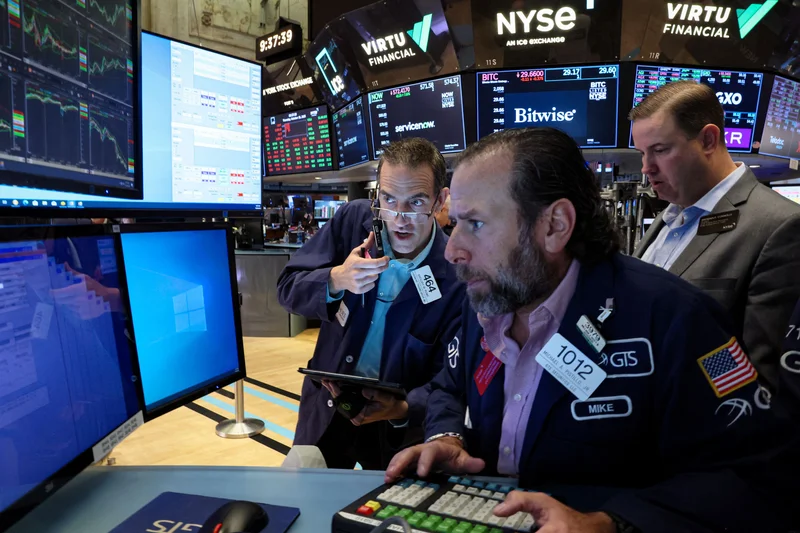Stock Market Plunge: AI Fears and Rate Worries
The AI Bubble: Bursting Before Our Eyes?
The stock market is having a rough November, and the reasons being floated around – AI overvaluation and interest rate worries – don’t quite add up upon closer inspection. The S&P 500 is on track for its worst November since 2008, while the tech-heavy Nasdaq is getting hammered even harder. What's supposedly driving this? A perceived AI-fueled "bubble," even after Nvidia's earnings beat expectations. Bitcoin is also feeling the burn, dipping below $87,000, a significant drop from its recent highs.
But let's dissect this "AI bubble" narrative. Nvidia, the poster child for AI optimism, did report blowout earnings. The knee-jerk reaction should have been sustained gains, not a sharp reversal. The article mentions Nvidia swinging from a 5% gain to finishing over 2% lower. This isn't a rational response to positive data; it's indicative of something else entirely. Are investors truly worried about AI's long-term potential, or is there a deeper, more systemic issue at play? As reported by NBC News, the Stock market sinks as AI and interest rate worries grip investors.
The Jobs Report Paradox
Thursday's jobs report initially sparked optimism (hiring surpassed expectations). However, a closer look revealed a contradiction: the unemployment rate rose to its highest level in nearly four years. This paradox is conveniently glossed over in most mainstream analysis. How can hiring exceed expectations while unemployment simultaneously increases? (Simple answer: people taking multiple part-time jobs to make ends meet.) This suggests a weakening labor market masked by headline numbers. It's like a company reporting record sales while simultaneously increasing its debt load – a sugar rush before the crash.

And this is the part of the report that I find genuinely puzzling. The Fed is supposedly data-dependent, yet this conflicting data set doesn't seem to be prompting a serious re-evaluation of their rate hike strategy. Why not? Is the market over-interpreting the Fed's resolve, or is the Fed deliberately sending mixed signals to avoid triggering a full-blown panic?
Sentiment vs. Reality
The University of Michigan's preliminary consumer confidence reading is near a three-year low. This isn't just a data point; it's a reflection of underlying anxieties. People are feeling less confident, regardless of what the headline economic indicators suggest. Sentiment, while not directly quantifiable in the same way as GDP, is a powerful driver of market behavior. If consumers are pulling back, corporate earnings (even Nvidia's) will eventually suffer.
The claim that "stocks are headed for steep weekly losses, with the S&P 500 tracking toward a decline of over 2%, while the Nasdaq is positioned for an over 3% plunge" is alarming, but it's also important to consider the context. A 2-3% weekly decline, while significant, isn't necessarily catastrophic. It's a correction, perhaps a necessary one, after a prolonged period of gains. The real question is whether this correction will turn into a full-blown bear market.
The Market's Lost Its Mind
The market's current state isn't about AI overvaluation or interest rates; it's about a fundamental disconnect between Wall Street's narrative and Main Street's reality. The numbers are there, but they are being deliberately misinterpreted or ignored. The "AI bubble" is a convenient scapegoat, but the underlying problem is a loss of confidence in the system itself.
Tags: stock market today
Uber Stock Price: Earnings Data and Today's Trading – What Reddit is Saying
Next PostMSTR Stock: The 68% Decline and Bitcoin's Role
Related Articles
